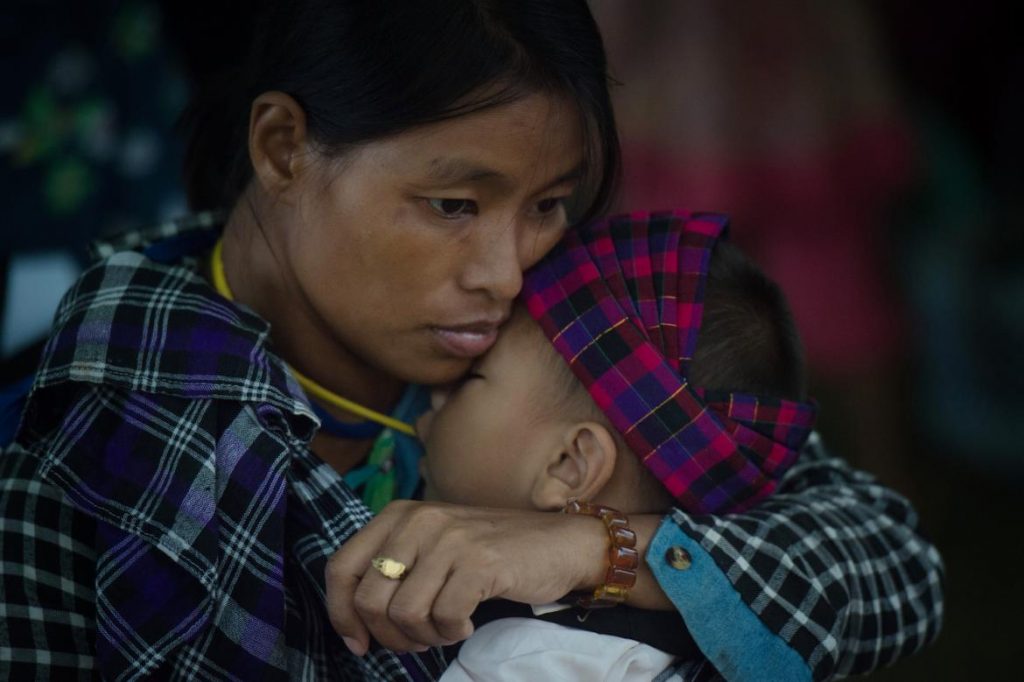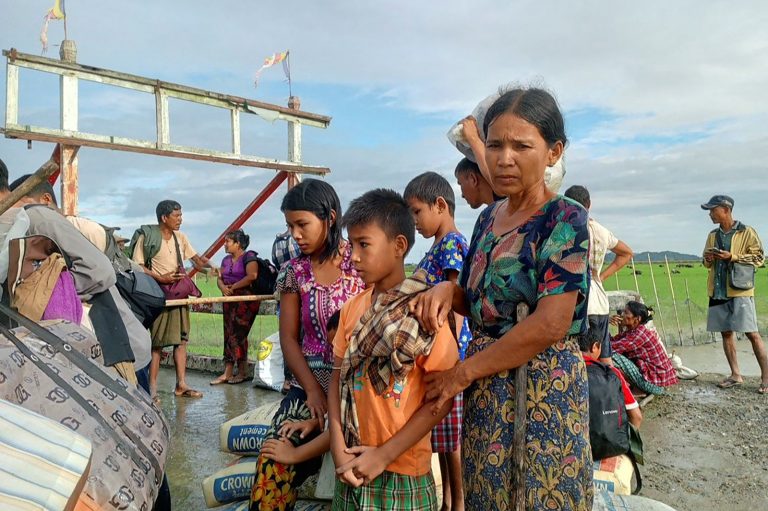By FRONTIER
YANGON — The government has not permitted United Nations agencies to deliver aid to thousands of displaced persons in non-government areas of Kachin and Shan states since June 2016, the UN Office for the Coordination of Humanitarian Affairs has revealed.
Since January 2018, there were 30 applications by the UN to deliver aid to IDPs in areas of the two states outside government control, but none were approved, UNOCHA said in a review of the situation published on June 6.
It said there were 106,000 people living in 169 camps in Kachin and Shan, of which 37 percent were in areas beyond government control.
“National partners do not normally require travel authorisations and continue to have access to most areas, but their access is increasingly unpredictable and complicated by delays and cumbersome procedures,” UNOCHA said.
Support more independent journalism like this. Sign up to be a Frontier member.
“Access to people within Government controlled areas continues to decline and almost 20,000 people in remote areas cannot be effectively accessed as travel authorisations were not approved. Relative to people in main town areas, displaced people in remote areas suffer from a disproportional lack of quality food, nutrition, shelter, water, health and education,” it said.
The lack of sustained humanitarian access was preventing much needed improvements in living conditions, UNOCHA said, adding that more than 7,600 families needed new or renovated shelters.
It said “effective humanitarian access” had not been granted to 64 percent of IDPs because travel authorizations were not approved for areas outside government control or approved with restrictions to main towns only in government-controlled areas.
A total of 44 percent of displaced sites could be effectively accessed.
The review said that nearly 47,000 people had been temporarily displaced by fighting in 21 townships in Kachin and northern Shan since January 2018, more than double the number during 2017.
The review said the UN continues to call on the government and all parties to respect their international humanitarian law obligations to allow and facilitate rapid and unimpeded passage of humanitarian relief for all civilians in need.







